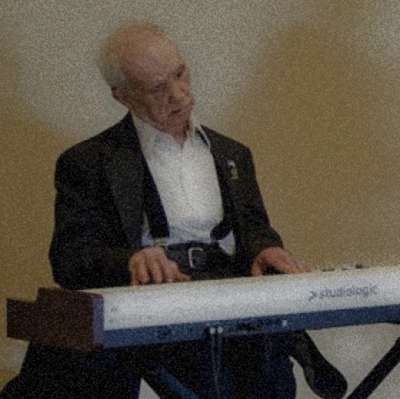Accent on Youth
by
Ted Bryan
___________________________
Ted Bryan is an eighteen-year-old Portland, Oregon resident who was co-winner of the 2006 Accent on Youth Essay Contest, as judged by jazz critic Gary Giddins, vocalist Dee Dee Bridgewater, and the publisher of Jerry Jazz Musician. His passion for and perspectives on jazz is the focus of the column.
This column was originally published July 26, 2007
*
Listen to Dinah Washington sing Accent On Youth
__________
Cacophony in Jazz
__________________________________________
Recently I saw a segment from a Wynton Marsalis educational
video series designed to teach kids about music. In the film, he told the
kids that music was “organized sound”; that music was not just melody, but
also rhythm — he illustrated this by drumming on his chest and calling it
music. As an example of what is “not music,” he had his band play a ten-second
burst of whatever they wanted on their horns.
Marsalis explained that what the band just played was
cacophony: unorganized and thereby not music.
We should question Wynton’s judgment here: first of all,
how is music “organized,” and how is cacophony not? In musical notation,
the basic markings show the length of the note and its pitch, so in this
way we could say that music is organized by pitch and finite duration: it
starts and stops. But outside of silence everything has in some way pitch
and finite duration. We could not say this is the only way music is organized.
To organize the constituents of music there is theory,
or there is a grammar, that defines where certain notes should go; but the
question raised by this is how much does grammar dictate form, because the
rules of grammar can always be broken and the sound still goes and it doesn’t
stop being music. I also ask, is it the observance of certain rules of grammar
that makes music enjoyable?
So how much does grammar dictate form? And this is tricky
because of misunderstanding about the use of the words ‘form’ and ‘grammar.’
By form I mean the relation of the parts of a whole, but I can also mean
the whole itself disregarding its constituents/ relations thereof. In music,
especially in jazz, distinct from other mediums, the minutiae are always
apparent when talking about the ‘form’ of a piece: a piece is not viewed
as the sum of its notes. So in this context, by ‘form’ I mean the relation
of parts. And grammar is a particular way of relating parts. Because a grammar
if followed creates a form entirely predictable insofar as it correctly uses
a particular grammar, we could say grammar dictates form. Grammar is a variable
form with one distinctive feature that is found in all the forms that truly
follow the rules of the grammar; but the history of jazz is about the evolution
of and departure from rules of grammar and there is no one governing rule
for all of jazz music except perhaps that all jazz must start and stop. And
the history of jazz is also about feeling, which is not organized, is not
a result of the observance of rules.
So Marsalis is really nowhere when he says cacophony
is not music, it’s unorganized.
Every piece of music has a relation of its parts and
that relation is a form in itself:
Everything is in relation to everything else, it finds
its own organization.
Cacophony has its own rule and you do not charge a man
in China by San Francisco law, he is outside the jurisdiction.
Cacophony in jazz: look at a recording like Ornette’s
Free Jazz, I’m not saying it’s entirely cacophony or whatever, I’m not sure
I’d care to define it, but, I’d say that what’s important about this music
is that it recognizes individual impetus more than convention as regards
the generation of sound — the same could be said of Cecil Taylor. In a way
what Marsalis really does is regard convention as the guiding principle of
his sound: convention and palatability perhaps — which is really a cop out.
*
To read Ted’s previous column, go to the next page







































